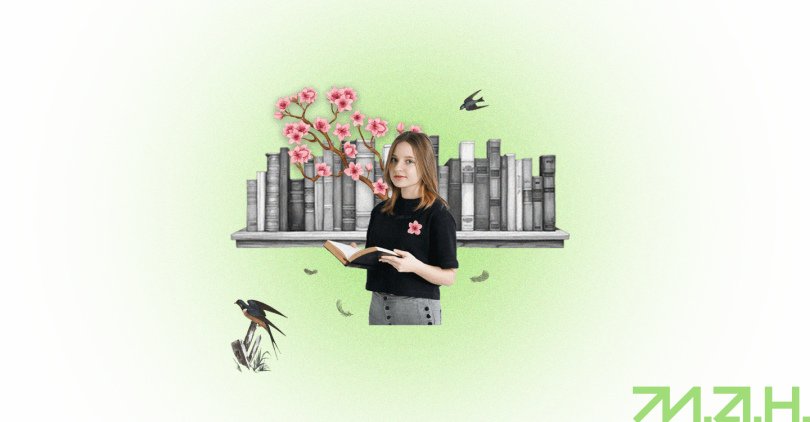What motivates young scientists to undertake projects and what results have they achieved?
About the cure for spring diseases - Valeria Pikhula's project

The young researcher found out how popular natural cold remedies are nowadays by conducting a survey among the residents of her city. She also created and distributed leaflets with scientifically proven facts about herbal remedies and cold life hacks. The researcher presented her project at the Competition for the Defense of Research Papers of Students - Members of the Junior Academy of Sciences in 2023.
After studying evidence-based information on this topic in scientific sources, the girl created two leaflets: on the benefits and harms of phototherapy and on how to protect yourself from seasonal diseases. In the first one, she described the properties of the most common medicinal plants, such as chamomile, thyme, or rose hips. And in the second, she wrote down 7 useful actions to avoid getting sick in spring or autumn, such as walking in the fresh air and drinking herbal teas.
The problem of migratory birds in Sofia Galaur's eco-story

The girl wrote a short story based on real events from her life and scientific facts about the devastating impact of the Russo-Ukrainian war on the environment. With her work, she won silver at the national stage of the 2023 Genius Olympiad in the Creative Writing category.
"I wrote the essay to draw people's attention to the environmental problems caused by the war. It is destructive not only for people but also for the environment. I really wanted to draw the attention of foreigners to what is happening in Ukraine. It is important that they help stop Russia," Sofia said in her interview with JAS-Media.
She used a comparative analysis of the environmental situation in France and Ukraine. One of the swallows, a character in her work, talks about the French eco-approaches: they reduce the number of airplane trips and create power plants that run on renewable energy sources. And a swallow from Ukraine talked about how Russians are destroying our planet: about emissions into the sea from sunken ships, air pollution by shells, and a possible explosion at a nuclear power plant.
Kateryna Terletska's research on flooding and dehydration of the Ingul River

The girl investigated how climate change and human activity affect the amount of water in the Ingul River in her home village. With her project, Kateryna won the regional stage of the Competition for the Defense of Research Papers by Students of the JAS in 2023.
The river used to be full of water and boats used to sail along it, but now dams and artificial ponds have been created on its tributaries, so the Ingul is no longer filled with water from there. Now the river is fed only by rain and melted snow. However, the climate has changed: there is not enough precipitation to fill the river, so it dries up in summer.
And when the Russians blew up the Kakhovka hydroelectric power plant, the Ingul overflowed and flooded the gardens. Later, the water went down.
"We wanted to popularize this project at the community level, so that as many people as possible could see the results and take the problem seriously. But a full-scale war broke out, and people in Mykolaiv region are not up to my project now, unfortunately," Kateryna says.
However, the project had a practical continuation: the community gathered to clean up trash near the Ingul and its tributaries, and the girl continues to take care of the cleanliness of the coastal areas.
Follow the link to read the full stories of the heroines.
Photo: JAS Media







